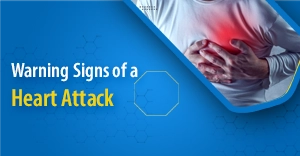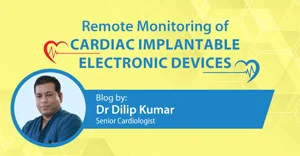Heart transplant is a procedure where a failing heart is replaced with a healthy donor heart. It is usually recommended by doctors when all other forms of treatment – medical, interventional or surgical – have failed. Though it is a complex procedure, the success rates are usually good. The patient would, however, need to work with the clinical and rehab teams in ensuring the success and be willing to make the necessary lifestyle changes.
Free Doctor Assessment
Medica’s Heart Transplant Programme
Among the most advanced in the region, Medica’s Heart Transplant Programme comprises highly skilled surgeons, critical care specialists, specially trained nurses and technicians, along with cardiac rehab and nutritionists’ team. Dedicated operation theatres and CTVS units fitted with the latest life support and monitoring technology, provide comprehensive coverage and post-transplant support. We also facilitate air-ambulance transfer of critical patients, nationally and internationally.
Heart Failure Requiring a Transplant can be Caused by
- Cardiomyopathy: a disease of the heart muscles which weaken over time and it becomes increasingly difficult for them to pump blood to the rest of your body. A progressive condition, it is likely to ultimately result in heart failure.
- Coronary Artery Disease: Caused by narrowing or blockage of the coronary arteries due to fatty deposits. Again a progressive disease usually related to age, obesity, smoking habit or lifestyle complications like diabetes and high blood pressure
- Heart-Valve Disease: Sometimes one or more of our heart valves do not work properly thus disrupting the flow of blood to and from the heart. This can be a congenital defect or in adults can be a result of some infection or complication of some other heart condition.
- Congenital Heart Defect: A condition that exists from birth and may be detected later in life. It may involve the wall of the heart, valves, arteries or veins. It may be caused due to developmental abnormalities in the early stages of pregnancy or a result of certain infections like Rubella.
- Ventricular Arrhythmia: Abnormal heartbeats that originate in the lower chambers of the heart (ventricles). This causes the heart to beat too fast and prevents the proper circulation of blood to the body. Overuse of caffeine, nicotine or other stimulants which cause an increase in heart beat may increase the chances of this condition.
A heart Transplant is essentially the last resort treatment for heart failure. Though it is a complex procedure, the success rates are usually good. The patient would, however, need to work with the clinical and rehab teams in ensuring success and be willing to make the necessary lifestyle changes like quitting smoking and consuming alcohol, and following regular exercise and balanced diet routines.
A heart transplant is usually not recommended in the following situations:
- In older people advanced age can make recovery from the surgery difficult
- Presence of other medical conditions that are likely to shorten one’s
- life, like serious liver, kidney or lung disease
- If one has an active infection
- If one has a recent medical history of cancer
Possible Risks of a Heart Transplant
Rejection of the donor’s heart by the recipient’s body is the most common cause of failure of the surgery. This is the result of the recipient’s immune system identifying the transplanted heart as an enemy. Immunosuppressant medications are prescribed by doctors to prevent this. Regular check-ups and heart biopsies are a must during the first year of the transplant to determine if your body is rejecting the new heart. Primary graft failure is a condition where the donor’s heart does not function Thickening of artery walls post-transplant may occur in some patients and this can lead to further complications
Long-term use of immunosuppressants increases the risk of kidney disease and cancer. It may also make you more prone to infections Preparing for the transplant The heart transplant centre needs to have a comprehensive heart treatment facility, including advanced critical care and rehab facilities
Our doctor will evaluate your readiness for transplant based on the following:
- You have a heart condition that will benefit from a transplant
- Are healthy enough to undergo the trauma of transplant and post-surgery treatments.
- Are willing to make the necessary lifestyle changes, including quitting smoking.
- Are willing to strictly adhere to the treatment programme outlined by the medical team before, during and after the transplant.
- Your emotional strength in handling the wait for a donor and post-transplant treatment/complications.
- Your network of family and friends who can serve as your support group can help you deal with the stress.
How is a Donor Match Determined?
Donor matches will be determined by your height, weight, blood type, and the severity of your ailment.
Your treatment team will continue to check the status of your heart and other organs while you wait for the donor. To keep you fit, they may modify your prescriptions on a regular basis and advise you on your food and exercise routine. Your doctor may prescribe an interim device implant operation if your present treatment approach fails to support your important organs while you wait. These are referred to as “bridges to transplantation” and are known as ventricular assist devices.
Treatment at Medica
From the time of removal of a donor’s heart, one usually gets about 4 hours to complete the transplantation process. As soon as a match is established by your heart transplant centre, you shall receive a call from them. You need to be alert and ready to move immediately. At the hospital, you shall need to undergo a final evaluation to ensure the suitability of the donor heart and your readiness for the surgery. You would be able to undergo the surgery only if all the parameters are found suitable. You shall need to undergo a pre-anaesthesia check.
Life-long Care Plan post-Transplant Please understand the success of the transplant surgery and your quality of life post-transplant will depend a lot on sustaining the long-term adjustments you will be required to make.
Immunosuppressants are medications that decrease the activity of your immune system. You shall need to take them for life
Medications and lifestyle adjustments will become a part of your daily routine. Your doctor will advise you on the necessary adjustments you shall need to make in your diet and exercise routine, giving up all tobacco products, and being careful to lower risk of infections.
Do not make any changes in your medications without talking to your doctor and keep him/her informed about any other health condition that may develop and you are prescribed a new medicine.
Cardiac rehabilitation is an important part of your recovery process. Specialized therapists will start working with you while you are in the hospital to help you get back to your normal routine and activities as soon as possible. You may need to continue the therapy post your discharge also for a while to ensure the best outcomes.
Studies have shown the success rate of heart transplants is quite high, and most people experience a vast improvement in their quality of life. Some women with transplanted hearts have been known to go through successful pregnancies, but it is advisable to consult your doctor before planning a baby.

Minimally Invasive
Surgery

World Renowned
Experts
EMI Facility
Available










